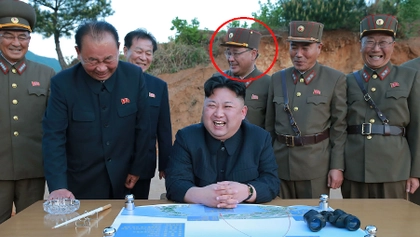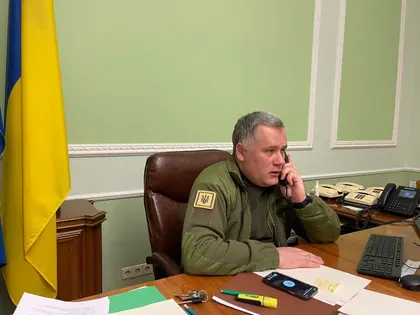On Dec. 14, the EU leaders made a political decision to start accession negotiations with Ukraine.
President of Ukraine Volodymyr Zelensky called it “a truly remarkable result for Ukraine and for the whole of Europe… Another step towards Ukraine’s full membership in the EU.”
JOIN US ON TELEGRAM
Follow our coverage of the war on the @Kyivpost_official.
Ihor Zhovkva, the man responsible for foreign policy in the Office of the President, said in an exclusive interview with Kyiv Post that both Zelensky and his team believed that Ukraine had just taken another major step toward full EU membership, notwithstanding widespread skepticism due to Hungary’s opposition.
Ihor Zhovkva was with Zelensky during a visit to Oslo, just a day before the summit in Brussels. He helped prepare the Ukrainian leader for a number of important negotiations with colleagues. Eventually the result was in favor of Ukraine.
Kyiv Post spoke with Zhovkva about some of the behind-the-scenes activity.
Just before the historic decision did you personally expect it to be “yes” or “no”?
The President, his chief of staff [Andriy Yermak] and I – we were all sure of a positive result. We knew that it would not be easy, and we kept working on it literally overnight and into the morning that the summit started.
Did you understand how to get this positive result?
Absolutely. This is not the first result we have received from the EU. On Feb. 28, 2022, the President of Ukraine applied for EU membership. And on March 25, the application was supported at the summit of the European Council.

North Korean Ballistic Missile Expert Spotted in Donetsk
The second result was EU candidate status [on June 23, 2022].
Later we received seven recommendations from the European Commission and implemented them. That was confirmed by Charles Michel, the President of the European Council, and Ursula von der Leyen, the President of the European Commission when they visited Kyiv in November.
While preparing for the December summit, we understood the procedure the President’s team had to follow.
Zelensky’s speech had a huge impact on the decision that was made by the 26 EU leaders.
What was the last day before the European Council summit like for the President’s team?
On Dec. 13, just a day before the EU summit, the President was working at the second Ukraine-Northern Europe Summit in Oslo. This was planned in advance, and the date was set earlier.
In Oslo the President of Ukraine held bilateral meetings with the Ukraine-Northern Europe Summit’s participants, including two EU leaders who went to the EU meeting in Brussels on the same day. They were Mette Frederiksen, the Prime Minister of Denmark, and Ulf Kristersson, the Prime Minister of Sweden.
While President of Finland, Sauli Niinistö, was visiting Oslo, the Finnish Prime Minister Petteri Orpo joined the EU summit in Brussels. But the Finnish President said in talks with President Zelensky that he would share all Ukrainian signals to his PM.
Jonas Gahr Støre, the Prime Minister of Norway, said to the President of Ukraine during bilateral talks in Oslo: “Unfortunately, we cannot help. Norway is not a member of the European Union. But we will share your position to those with whom we communicate.”
In the evening, the President held telephone talks with Italian Prime Minister Giorgia Meloni, who also played an important role during the European Council summit. And late at night the President held telephone talks with Charles Michel.
Finally, there were talks with Donald Tusk, the Prime Minister of Poland, who was sworn in on the same day in his country. And in his new status, he went to the EU summit, where he also played an important role.
President Zelensky’s proposal in his online address at the opening of the summit appeared in these talks. Later, I spoke to the leaders’ diplomatic advisers, and they all confirmed that the speech had a huge impact on the decision that was made by the 26 EU leaders.
Left to right: Prime Minister of Sweden Ulf Kristersson, Prime Minister of Iceland Katrin Jakobsdóttir, Volodymyr Zelensky, Prime Minister of Norway Jonas Gahr Støre, President of Finland Sauli Niinistö, Prime Minister of Denmark Mette Frederiksen. Photo: president.gov.ua
At that moment, did the Ukrainian side hope that the President’s address would influence Hungarian President Viktor Orban as well?
The President of Ukraine did not plan to address Orban directly. In his speech, the President used the words Europe, the European Union, European leaders, European peoples, the Ukrainian people... You will probably find only one surname at the beginning – an address to Charles Michel as chairman of the EU summit.
So, it was a European leader’s address to European nations and their leaders, as well as to Ukrainians and to the entire European continent. That’s why it made an impression.
€50 billion for Ukraine within the medium-term budget of the EU was blocked by Orban at the December summit. The issue will be reconsidered at the beginning of February. This time is also needed to convince Hungary to vote positively. Unlike the decisions on enlargement, which are political ones, the adoption of financial issues in the EU has slightly different mechanisms. How does it actually work and what is needed to bypass the Hungarian veto?
My understanding is that the political decision of the same 26 countries that made a similar decision to open EU accession talks with Ukraine also exists regarding the €50 billion in funding to Ukraine. It was adopted during the discussion at the European Council summit.
But what was not achieved during the December summit was actually writing down on paper how this decision would be implemented. That is why the European Council postponed the issuing of this decision until the next time.
There was a statement that an extraordinary, informal meeting of the European Council will be held on Feb. 1, 2024. And indeed, there are several ways this money can be physically provided to Ukraine. Internal work in the European Union is lasting, and, of course, there is work with the Hungarian side.
The ideal option for Ukraine is to receive these funds within the Ukraine Facility instrument, as the EU long-term budget for 2024-2027 will be adopted. I personally believe that it will be possible to agree on this mechanism.
But there is another option – providing the same funds, but through bilateral aid. Then all those countries that are ready to provide such aid to Ukraine will do so. We have every chance that it will be the same 26 countries.
Simply speaking, these may not be funds from the melting pot, or the Multiannual Financial Framework (MFF) of the European Union, but just aid on a bilateral basis by certain countries.
After EU accession talks with Ukraine opened, the EU leaders greeted the President by phone, and he certainly asked how worried we should be about the €50 billion aid package. He was assured that the issue had been solved positively.
Do you think a miracle happened at the December summit? There are no miracles in diplomacy. All these “miracles” are very carefully prepared.
Do we need to complete something from the European Commission’s recommendations by the European Council meeting in March 2024, when the decision on a negotiation framework should be approved?
One of the steps within the European Commission’s recommendation regarding the “oligarchic reform” is the law on lobbying. It was already approved by the Ukrainian government and registered in the Verkhovna Rada. There is every chance of its adoption by March, and the President will sign it.
But in order to not waste time, the Ukrainian side is preparing the negotiation framework right now.
Left to right at table: Ursula von der Leyen, Ukrainian PM Denys Shmyhal, Emmanuel Macron, Viktor Orban and Olaf Scholz, during a meeting in Brussels on December 14. Photo: twitter.com/PM_ViktorOrban
What’s next after adoption of the negotiation framework next March?
We have to start forming a strong core negotiating team now. When Ukraine actually starts the EU accession talks, we will work on the accession agreement, which consists of 35 chapters. And there will be a separate negotiation team for each of the chapters, and strong specialists will be needed there.
But Hungary will join the March summit and it will again appeal to the fact that Ukraine has allegedly not completed some processes…
We will solve this the same way as before. We heard the same statements from Orban before the December summit as well.
Do you think a miracle happened at the December summit? There are no miracles in diplomacy. All these “miracles” are very carefully prepared.
Ursula von der Leyen watching Zelensky. Photo: president.gov.ua
Officials in Brussels say that the EU is getting tired of Orban’s statements and actions, and they are considering ways to change the consensus decision-making procedure. Do you believe this?
Ukraine’s position is very simple and clear: we cannot oppose the commitment of the EU members to improve the decision-making procedure, and we thank them very much for inviting us to this process. This means that Ukraine is really seen as part of the EU. However, Ukraine’s accession to the EU should in no way depend on the success or failure of the reform process.
You can also highlight the text and press Ctrl + Enter









